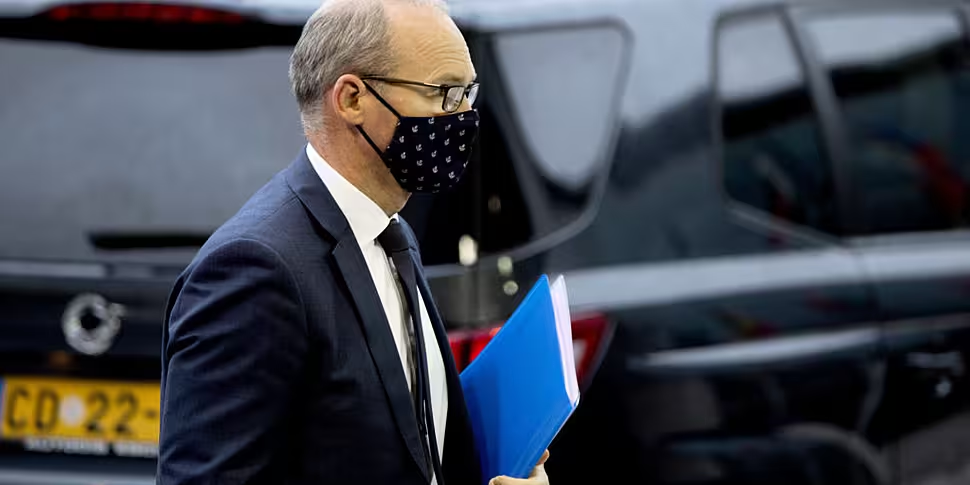The Minister for Foreign Affairs has said he does not expect a breakthrough in Brexit trade talks this week.
Simon Coveney said there has been "little or no progress" made between the European Union and the United Kingdom on the issue of fishing.
However, he said there has been some progress on the issue of the level playing field and on the Irish protocol aimed at avoiding a hard border.
British Prime Minister Boris Johnson has indicated in the past that he would walk away from talks if there was no agreement reached by October 15th.
Speaking after a meeting of European Ministers in Luxembourg, Mr Coveney said time is running out to strike a deal.
He said that there would be "a detailed stock-take on where we stand in these negotiations" when the EU Council meets later this week.
However, he said: "But certainly, I don't see any breakthrough in negotiations this week."
Mr Coveney added: "The Brexit journey continues for a little bit longer yet.
"All of us need to ensure we do everything we possibly can to make sure that we make a deal possible in the next few weeks because we are running out of time.
"Once we get to the end of this month then I think we really are running out of time to ratify any deal that may be struck or certainly, I hope can be struck."
Another focused & positive meeting with @MichelBarnier in #Luxembourg on #Brexit & finding a way to get agreement with #UK. Message on fishing is clear: Fishermen matter to the EU & will remain a priority in negotiations! pic.twitter.com/1C1CxuZV3F
— Simon Coveney (@simoncoveney) October 13, 2020
He continued: "From an Irish perspective, I also had the opportunity to have a good bilateral discussion with Michel Barnier and also with Maroš Šefčovič.
"Again, a significant focus on fishing and how that issue gets resolved in a way that's fair and protects the Irish and EU fishing interests.
"And also with Maroš Šefčovič, a big focus on the implementation of the protocol on Northern Ireland and Ireland in a way that ensures an all-island economy can continue to function and that there is an implementation of the protocol that is fully consistent with what was agreed last year in the Withdrawal Agreement which is now international law.
"But also to try and work out ways that the implementation can work for both sides, for people in Northern Ireland, for people in Great Britain and people living on the island of Ireland as a whole.
"I think it's fair to say that progress is being made on the protocol and many of the genuine concerns that both sides have in terms of the complexity of full implementation of what's been agreed."









